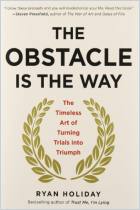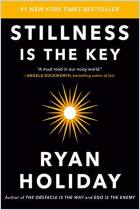Jonas Salzgeber wants you to forget the clichés and distortions you may associate with Stoicism. In this entertaining and informative text, Salzgeber takes readers on a journey through the Greek and Roman family tree of this influential and old philosophy. He links ancient and modern examples of mindful-living principles to the original Stoic approach. In the style of the classic Stoic philosophers, Salzgeber provides practical tips for integrating Stoicism into your daily life. A more meaningful, serene existence is possible, he argues, if you learn to develop and flex your Stoic muscles.
Stoicism offers lessons on the craft of living well.
How can you become skilled at living? Epictetus, a Stoic philosopher and teacher, offered a simple answer: Practice. Through practice and discipline, you can elevate daily life into an art form. According to the Stoics, moment-to-moment life experiences offer the basic materials for those seeking to master the craft of living well.
Stoicism provides a manual for creating a good life. Stoic principles teach you how to calmly face challenges, develop resiliency, enjoy a meaningful existence and excel in the art of living well. The Stoics believed that, through practice, hard work and discipline, you can become the best version of yourself. Outcomes and external conditions don’t matter; your reaction to those events is the main concern. Your negative or positive responses to external events shape the quality of your life.
Zeno, a merchant, developed Stoicism in Athens after suffering a shipwreck.
In 320 BCE, Zeno, a merchant, lost his entire wealth in a shipwreck off the coast of Greece. After that misfortune, Zeno settled in Athens. There, he wandered into a bookstore and began reading about ...



















Comment on this summary or Начать обсуждение